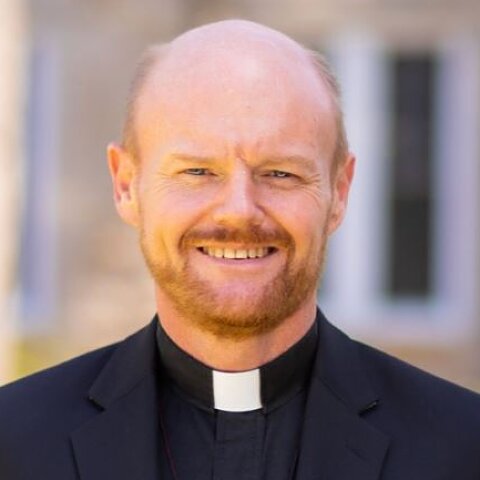Commentary on Psalm 84:1-7
Throughout life, we humans sometimes identify certain places or times as special.
Often the result of interaction with one or more other persons, these places and times take on added meaning. The same is true of religion. Various times and places can come to be identified as sacred or holy for various reasons. Such designations are a way of saying these times and places are different or out of the ordinary in an important and meaningful way.
Psalm 84 is typically categorized as a “Song of Zion.” The Temple Mount in Jerusalem was in ancient times, and is to this day, one of the most religiously hallowed places in the world. Many consider Psalm 84 to be a poetic account of the experience of a pilgrim approaching the temple in Jerusalem for a religious festival. The sense of excitement and awe must have been almost overwhelming as the city on a hill with its exalted temple first came into view.
But what makes going here so “special” or so “different” from anything else a person might do? The difference is that this is the dwelling place of the “Lord of hosts” (verse 1). Referring to God in this way is reminiscent of stories surrounding the ark of the covenant in which God is invisibly enthroned upon the cherubim but nonetheless present in a real way among the people. The realization that God desires to dwell among mortals is as powerful for the psalmist and pilgrim as it would later be for John of Patmos (Revelation 21:3).
This “Lord of hosts” is also the “living God” (verse 2). Not only does all life come from this God, but living further characterizes the holy one who dwells in Zion as one who is dynamic, at work, and active among that which he has created. This God is not static and trapped in endless cycles of death and rebirth as some of the Canaanite deities. Only in Zion does the pilgrim find the one who can truly be called the “God of gods” (verse 7).
So the palpable excitement found in the psalm is not so much about going to the particular place, but more so about who and what may be found there – the very presence of God. It is because of God’s presence that the psalmist may say, “Happy are those who live in your house” (verse 4). Even the birds seek to be in the presence of God and thus find homes among God’s altars (verse 3).
There is no validity in accusing ancient Israel of viewing God as present only in Zion. While the temple was viewed as the focal point of God’s presence (where it was most “intense” so to speak), God was certainly present and could be experienced outside of Jerusalem. There are hints of this even here in this psalm whose focus is on Zion.
Verse six mentions travel through the valley of Baca. The location of this place is unknown, and it may be more a symbolic designation than a concrete place. Yet it would seem that Baca is known or should be understood as a notoriously dry place. Then, it becomes striking to hear that pilgrims might find springs there. In fact, the text says that they actually “make it a place of springs.”
What is special or different here? Again the answer is the presence of God. Those who experience God’s real presence are brought into a new reality where a dry valley can yield springs and be covered with rain. The living God uplifts and empowers through this new reality in a way just as real as the Lord of hosts led and sustained his chosen people through the wilderness and into the promised land.
Psalm 84 invites readers to a similar experience. There are those special places and times in the life of faith where God’s presence may be found particularly intense. Believers need these anchors amid the seas of life. Regular worship at one’s home church and experiencing the Sacraments are both ways of profoundly entering God’s presence and being uplifted and empowered by it.
God’s presence may also be found, however, in the dry valleys and journeys of life where one may not expect to find God. Even here the Lord of hosts, who is also the living God, brings springs, rain, and strength to those who seek the ever-abiding presence of the one whose home is among mortals.

October 24, 2010